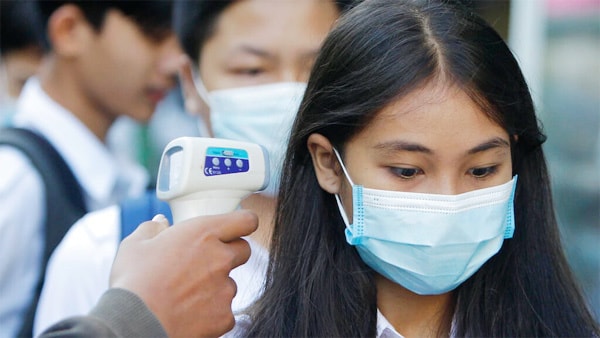Southeast Asian countries are in the midst of a resurgence of the Covid-19 pandemic.
As Covid-19 ravages India, several Southeast Asian countries are also in the throes of a new wave of the pandemic.
Southeast Asiaare in the midst of a resurgence of Covid-19, with alarming consequences. This past week marked an unfortunate milestone for several Southeast Asian countries, including those that had successfully controlled the pandemic in 2020.
 |
| Vaccination in Bangkok, Thailand. Photo: AP |
On April 29, Thai health authorities recorded more than 1,800 new infections, bringing the total number of infections since the beginning of the epidemic to nearly 64,000 cases, with 188 deaths.
The surge has prompted authorities to issue fines of up to $640 for people not wearing masks in public in 48 provinces.
One of the first to be fined was Prime Minister Prayut Chan-o-cha, who appeared on his social media account chairing a Covid-19 vaccination meeting without wearing a mask. He was later fined $190.
Thailand has not yet imposed a nationwide curfew. Provinces are allowed to set their own rules, including screening people arriving from other provinces.
Laos has also seen its worst outbreak after recording very few cases in the first year of the pandemic. On April 29, Laos reported 68 new cases of SARS-CoV-2, bringing the total number of cases nationwide to 672 and no deaths.
This has prompted the Lao government to impose a lockdown in the capital Vientiane, closing all bars, gyms and entertainment venues, and banning travel between provinces.
 |
| The epidemic situation in Cambodia is more serious than in 2020. Photo: AP |
A similar situation is playing out in Cambodia, a country that has made it through 2020 with relatively few Covid-19 cases. On April 29, Cambodia reported 880 new cases, bringing the total to more than 12,600, with 91 deaths.
The sudden surge prompted the Cambodian government to impose a strict lockdown in the capital Phnom Penh, the nearby town of Takhmau and the southwestern city of Sihanoukville.
Authorities have declared several districts “red zones,” banning people from leaving their homes except for medical reasons. In a new order, Phnom Penh said all markets would be closed until May 7. The country has also banned travel between provinces and closed schools, tourist attractions, sports facilities, museums, cinemas, entertainment venues and other venues nationwide.
Most countries in Southeast Asia have started mass vaccination campaigns. However, only Singapore has expanded its program, with 37% of its population vaccinated. The next countries on the list are Cambodia, which has vaccinated 12% of its population, Indonesia (7%), Malaysia (4%), Laos (2.5%), Thailand (1.9%) and Vietnam (0.44%).
Singapore is expected to achieve universal vaccination coverage by early 2022, on par with the world’s richest countries, while Vietnam is expected to reach that level by mid-year and Thailand and Malaysia by the end of 2022.
For the rest of the region, including some countries experiencing Covid-19 surges, the outlook for vaccination plans is not rosy.


